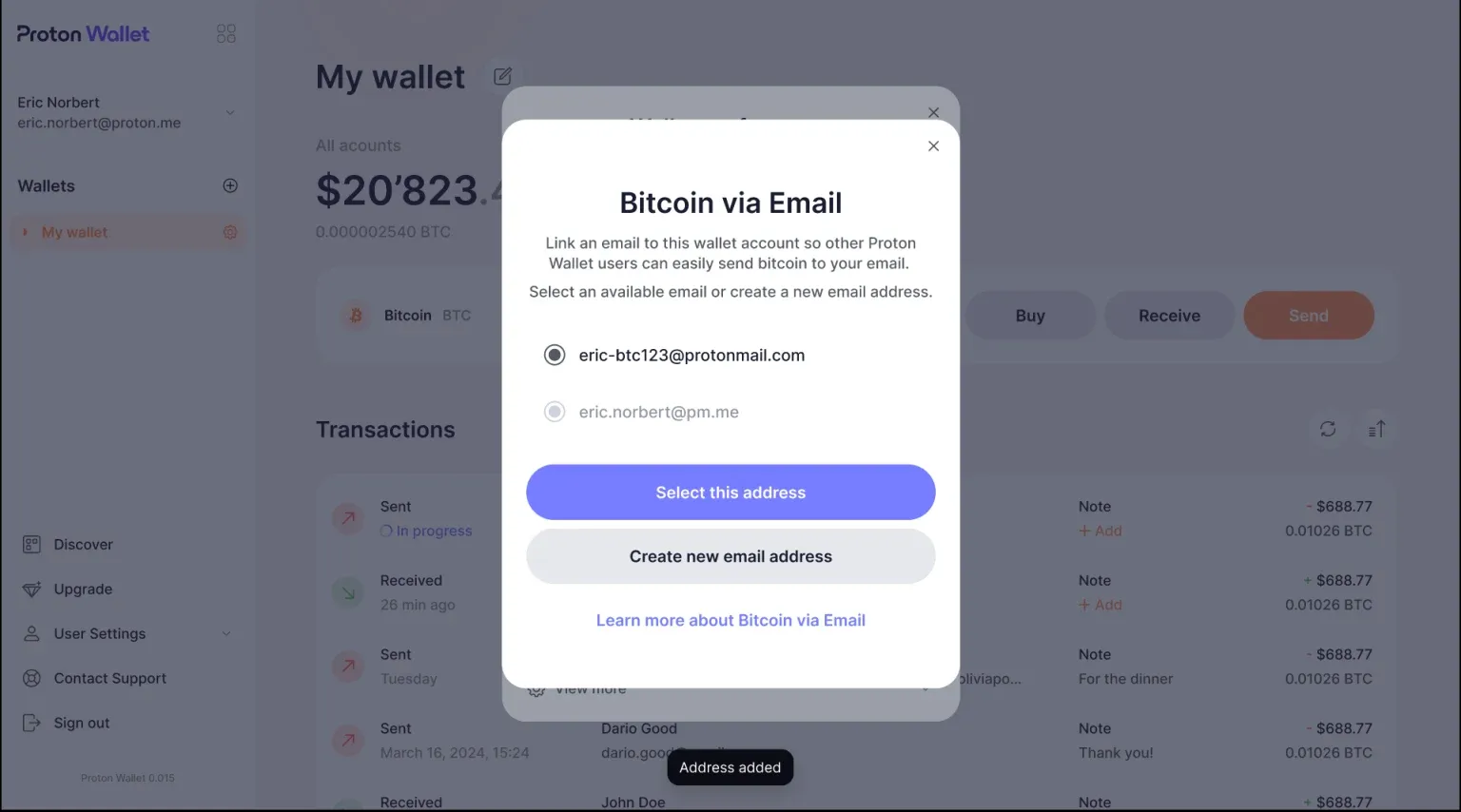Table of Contents
Proton, a privacy services company based in Switzerland, has introduced its self-custodial Bitcoin wallet, Proton Wallet. The open-sourced wallet lets users store Bitcoin for now, more assets might be added in the future depending on the community.

Proton Wallet joins Proton's current suite of products including Proton Mail, Proton Calendar, Proton Drive, and Proton Pass. These products are all similar to current products that Google offers with an added emphasis on end-to-end encryption and privacy.
As of April 2023, there are over 100 million accounts, as reported by Proton. This represents a huge opportunity to onboard a new wave of users to cryptocurrency.
Currently, only Visionary and Lifetime tier users have immediate access, which cost €39.99/month or €359.88 for one year (€29.99/month). Lifetime accounts are extremely rare, and a raffle is the best way to obtain one or you can get one in the secondary market if you are willing to spend $14,500.
With Proton Wallet, sending and receiving Bitcoin is as simple as sending an email versus verifying the recipient's Bitcoin address manually. Copying and pasting the wrong recipient address can be costly, as blockchain transactions are irreversible and there is no customer service for users to contact.

Crypto enthusiast @TylerDurden says that it is impressive, and he is moving his friends over to the Proton ecosystem.
I’m in and sent to all of my friends who I moved on to protonmail, drive and calendar :)
— Tyler (@TylerDurden) July 24, 2024
However, in a subreddit discussion, several users expressed their dissatisfaction, pleading with the Proton team to improve on existing products before releasing new products that the community did not ask for.
"I love this, but agree with those saying that we need more focus on existing products. New products are coming fast, which is awesome, but existing products seem to be languishing which is a poor customer experience," said one Redditor.
"I was really hoping this was some sort of actual digital wallet to rival Apple or Google," said another.

Common complaints include the inability to efficiently search emails and calendars on mobile. Many users assert that they will not fully adopt the Proton environment unless these issues are fixed.
Given the mixed response, the reception of the launch remains uncertain, but the feature allowing users to send and receive Bitcoin via email is certainly intriguing.










